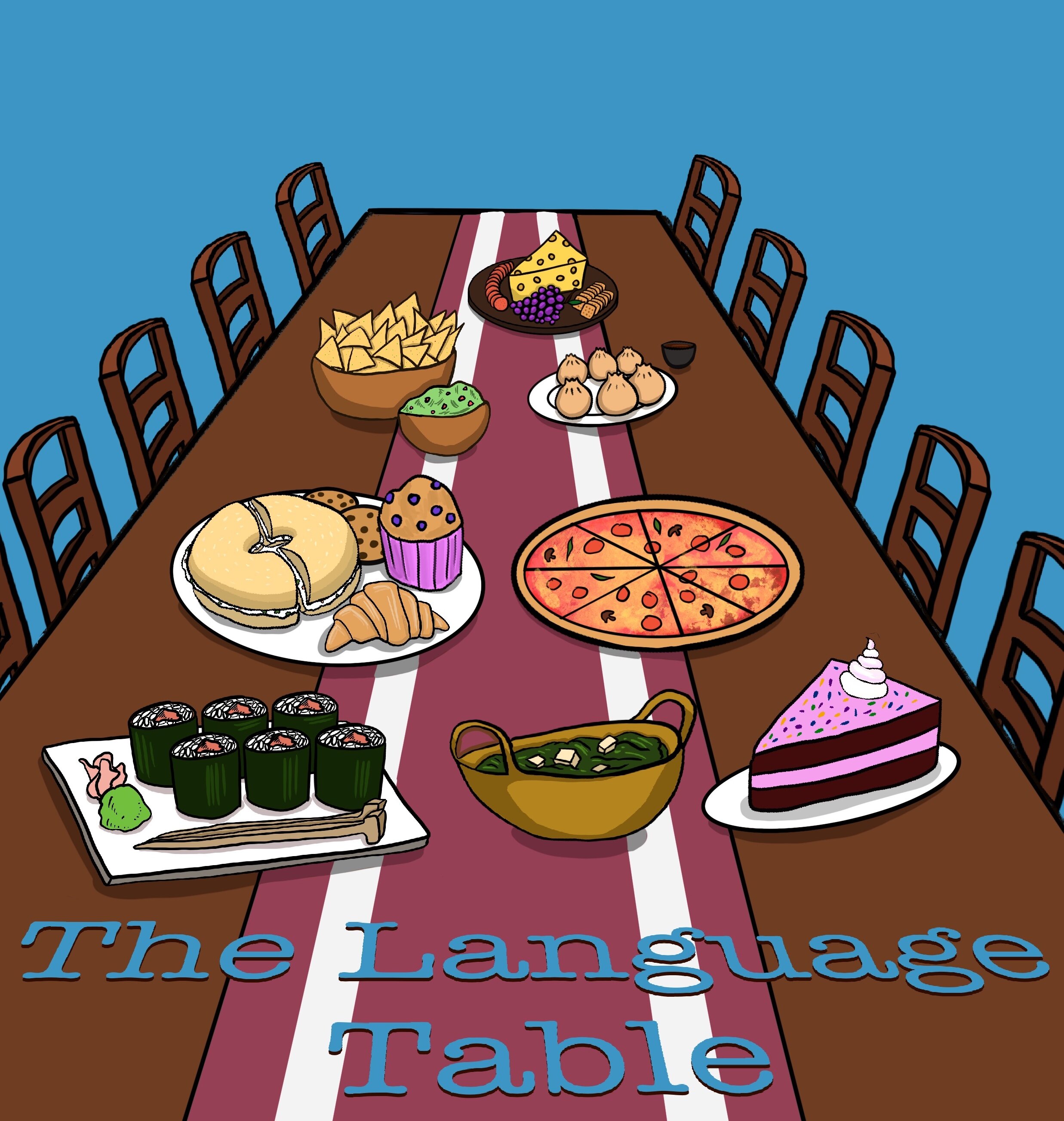Graphic by Anjali Rao-Herel ‘22
By Amelia Luo ’23
Staff Writer & Photographer
This year, due to remote learning, the Korean Language Table is being hosted through Zoom. Although different from the traditional language table experience, students are adapting, finding new and innovative ways to celebrate Korean language and culture virtually.
“The table’s goal is to make students more motivated in learning Korean as their second language … because sometimes it’s hard to start learning a new language,” Chloe Choi ’21, the host of the Korean Language Table, said. This is Choi’s first year working as a Korean language assistant and third year as a language tutor.
“The Korean language assistant [and] tutor job is always pleasant because I can meet many students who’re interested [in] or even love the culture where I’m from,” she said.
Each week, the language table has different themes. In the first module, they covered the national holidays of Korea; in the current module, they are learning more about Korea’s culture, history and geography.
Choi expressed her initial worries with holding Korean Language Table on Zoom. “In the beginning, I was a little afraid of using Zoom since I was a bit worried about … less motivation [from] students,” she said. “Fortunately, everyone is very passionate and active in the events.”
Clare Heywood ’21, who is also a Korean language mentor, sees the event as a bridge that connects a small community. “I find that it’s a very lovely way for those learning Korean at the moment or those people who have taken Korean courses at Mount Holyoke in the past to connect with the language in a small and community-based manner each week,” Heywood said. “I’m incredibly glad they’re still being held through the pandemic, and that I can continue to meet a wide array of Mount Holyoke students with similar interests as well as offer them my support as an upperclassman.”
Ayesha Khalid ’23 expressed excitement about how the language table has influenced her study of Korean. “I took Intro Korean in the first module, but I am still attending Korean Language Tables in the second module,” Khalid said. “The breakout room discussions are very engaging, and it is really fun to talk about Korean culture even if our class peers are far from each other and doing it virtually. The experience is very lively and [we’re all] inclusive of each other.”
“It would be even more fun if Korean Language Table takes place in person over the upcoming semesters,” Khalid added.
Venesia Delancy ’22 hasn’t missed a single Korean Language Table since the semester started. This surprised Delancy, who said, “Given the circumstances, I'm glad we’ve been able to transform the language table into something that still engages us and the students during these times.”
The virtual Korean Language Table is hosted weekly on Thursdays from 8:30 p.m. to 9:30 p.m. EST. Anyone interested in learning about Korean language or culture is welcome to join. The event is made accessible to all levels of Korean speakers, as well as people who have no background in the language at all. For the Zoom link, please contact Professor Kyae-Sung Park (kspark@mtholyoke.edu).


